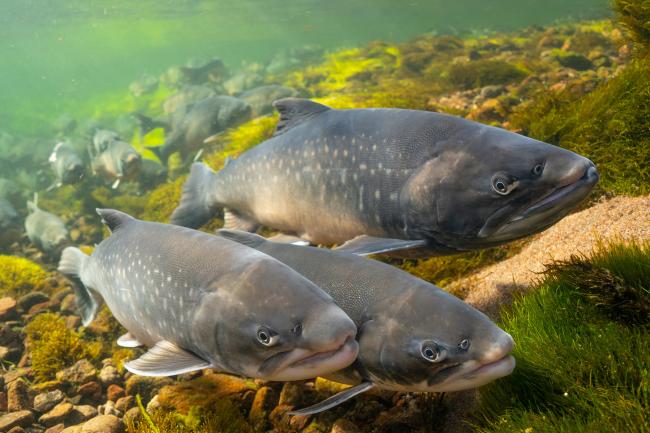
For the first time, the Earlham Institute will host the Genome 10K (G10K) and the Genome Science conferences, simultaneously. This dual event, organised by EI’s Director of Science and council member of Genome 10k Prof Federica Di Palma, will bring together comparative and conservation genomics, with technological advances and innovative applications of genomics and computational science across plants, animals, microbes and human health.
The G10K community includes scientists representing major zoos, museums, research centres, and universities worldwide dedicated to coordinating efforts for the genomic sequencing and analysis of 10,000 vertebrate species, representing all vertebrate groups. The G10K initiative was founded by David Haussler, Oliver Ryder, and Stephen O'Brien, who launched the project in April 2009 at the University of California, Santa Cruz. The programme is now chaired by Erich Jarvis, a neuroscientist and genome biologist that helped lead the Avian Phylogenomics Initiative.
Founded in 2011 by the UK Next Generation Sequencing DeepSeq facility at the University of Nottingham, Genome Science is the UK’s largest conference centred on genomics, genomic technologies and computational biology. The conference provides a unique opportunity for both academia and industry to share their expertise, innovations and challenges in global genomics research data and cutting edge technologies.
Supported by a wide range of sponsors from international technologies companies to UK funding bodies and local councils, the double conference event will feature a diverse programme of sessions including Evolutionary Genomics, Population Genomics, Clinical and Translational Biology, and Single- Cell Genomics. World-renowned speakers will come together to present their cutting-edge research to a diverse audience united by a common theme of genomics research; a key link to the research and talent based at the Norwich Research Park.
Participants will be able to extend their professional networks through the scientific poster sessions, social mixer and conference dinners. A number of continuing professional development opportunities are available for student and early-career researchers to build their skill sets. The conference will also host ‘Special Interest Group’ sessions to monitor progress in the genomics and computational biology sectors, and set new milestones for the G10K project.
Prof David Haussler, founding member of G10K, said: “We are now entering a new era for genomics: we can actually sequence the chromosomes of a species, not just scattered, unordered pieces of the genome. Now is the moment where the science takes another leap."
Co-Founder of Genome Science, Prof Mick Watson, said: “Genome Science grew organically from a movement within the UK genomics community, and is now an international conference at the forefront of genomics. We are hugely excited to have speakers who will discuss their use of new technologies such as long-range sequencing, genome editing and single-cell genomics”
Director of the Earlham Institute, Prof Neil Hall, said: “I am delighted to welcome both of these prestigious conferences, Genome 10K and Genome Science UK to the Earlham Institute, Norwich UK, this summer. The two conferences will provide an outstanding opportunity for researchers and leaders around the globe to exchange information and collaborate around areas of genomic science and technologies. We’re looking forward to an impressive gathering and a tremendous scientific event.”
For further information, including early bird registration details, please see the ‘Genome 10K and Genome Science 2017’ web page.






